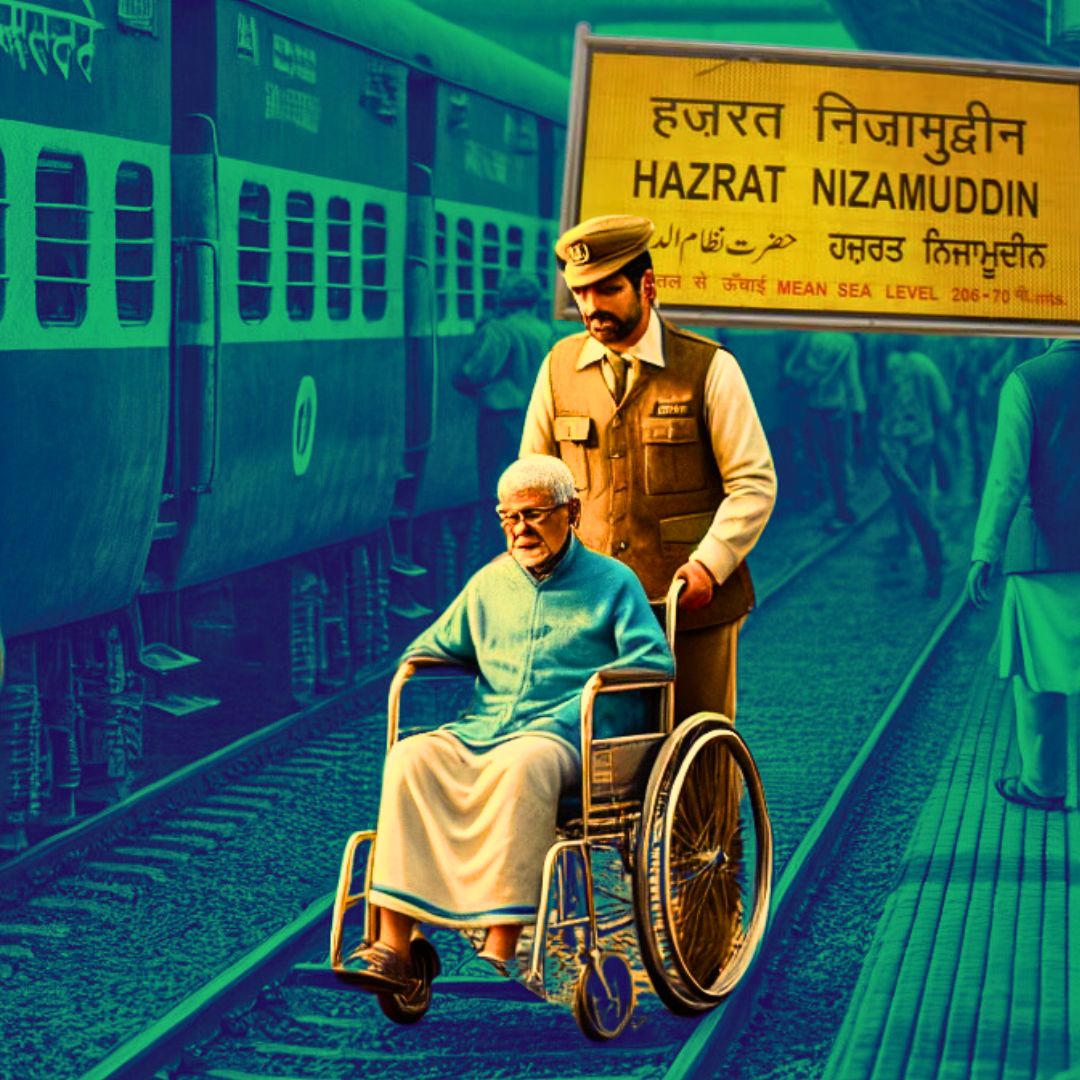A porter at Hazrat Nizamuddin Railway Station in Delhi had his license revoked after charging an NRI passenger ₹10,000 for a wheelchair service that is supposed to be free. The incident came to light when the passenger’s daughter filed a complaint, prompting an investigation by the Government Railway Police (GRP). The railways have since mandated the return of ₹9,000 to the family and reiterated their commitment to passenger welfare, emphasizing their zero-tolerance policy for such misconduct.
Incident Overview
On December 21, 2024, Payel, an NRI originally from Gujarat, arrived at Hazrat Nizamuddin station with her elderly father, who requires a wheelchair for mobility. After hiring a porter for assistance, she was taken aback when he demanded ₹10,000 for the service. This exorbitant charge raised immediate concerns for Payel, who later discovered from local taxi drivers that wheelchair assistance is provided free of charge at railway stations.
Feeling cheated and distressed, Payel promptly reported the incident to the Government Railway Police (GRP) at Agra Cantt station. Following a swift investigation, the GRP identified the porter involved and ordered him to refund ₹9,000 to the family. In response to this incident, Northern Railways issued a statement reinforcing their commitment to ensuring that all services provided to passengers are fair and transparent. They reiterated their strict policy against overcharging and promised stringent action against any violations.
Understanding Wheelchair Services
Wheelchair services at Indian railway stations are designed to assist passengers with disabilities or mobility challenges. According to guidelines from the Indian Railway Catering and Tourism Corporation (IRCTC), while a nominal deposit of ₹500 is required for using a wheelchair, this amount is fully refundable upon returning the equipment. These services are crucial for ensuring accessibility and comfort for all passengers, particularly those who may face difficulties navigating busy railway environments.
Background Context
This incident sheds light on broader issues regarding service standards and transparency within Indian Railways. The cancellation of the porter’s license not only serves as a disciplinary measure but also highlights ongoing efforts by Indian Railways to enhance passenger experience and uphold ethical standards among service providers. Such incidents are not isolated; they reflect systemic issues within public transport that require continuous monitoring and improvement. The railways have faced scrutiny in the past over similar complaints regarding service charges and accessibility issues.
Official Statements
Following the incident, officials from Northern Railways expressed their commitment to passenger welfare. A spokesperson stated, “We take such complaints very seriously and are dedicated to ensuring that our services remain accessible and fair for all passengers. Our zero-tolerance policy towards overcharging reflects our commitment to maintaining integrity in our operations.” This statement underscores the railways’ proactive approach in addressing grievances and reinforcing trust among travelers.
The Logical Indian’s Perspective
This incident serves as a poignant reminder of the importance of ethical service practices in public transport systems. Every passenger deserves respect and fair treatment, especially those who are vulnerable or in need of assistance. The actions of one individual can tarnish the reputation of an entire service network and undermine public trust in essential services. As we advocate for kindness and empathy within our communities, it is crucial to hold service providers accountable for their actions.
How can we collectively ensure that incidents like this do not recur? What measures can be implemented to promote a culture of compassion and integrity in our public transport systems? We invite our readers to share their thoughts and suggestions on fostering positive change in our society.












